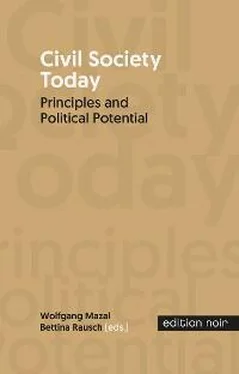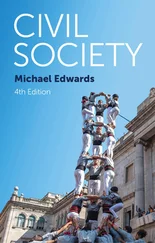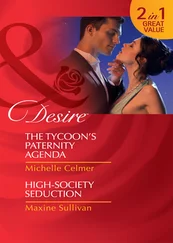Civl society
Здесь есть возможность читать онлайн «Civl society» — ознакомительный отрывок электронной книги совершенно бесплатно, а после прочтения отрывка купить полную версию. В некоторых случаях можно слушать аудио, скачать через торрент в формате fb2 и присутствует краткое содержание. Жанр: unrecognised, на английском языке. Описание произведения, (предисловие) а так же отзывы посетителей доступны на портале библиотеки ЛибКат.
- Название:Civl society
- Автор:
- Жанр:
- Год:неизвестен
- ISBN:нет данных
- Рейтинг книги:4 / 5. Голосов: 1
-
Избранное:Добавить в избранное
- Отзывы:
-
Ваша оценка:
- 80
- 1
- 2
- 3
- 4
- 5
Civl society: краткое содержание, описание и аннотация
Предлагаем к чтению аннотацию, описание, краткое содержание или предисловие (зависит от того, что написал сам автор книги «Civl society»). Если вы не нашли необходимую информацию о книге — напишите в комментариях, мы постараемся отыскать её.
dealing with the theory, history, and philosophical heritage of
the civil society, as well case studies from actual practice.
Civl society — читать онлайн ознакомительный отрывок
Ниже представлен текст книги, разбитый по страницам. Система сохранения места последней прочитанной страницы, позволяет с удобством читать онлайн бесплатно книгу «Civl society», без необходимости каждый раз заново искать на чём Вы остановились. Поставьте закладку, и сможете в любой момент перейти на страницу, на которой закончили чтение.
Интервал:
Закладка:
On the other hand, however, Aristotle deals with the period of the free citizen’s “leisure” ( scholê ) in Politics VII and VIII . It investigates the period of the individual’s personal, meaningful way of life beyond politics and political participation. In other words: A person who honours his political civic duties in this Aristotelian “best imaginable state” and performs these duties according to the law and for the good of the polis conscientiously and virtuously merits – in the broader sense – the right to occupy himself with things outside of the political sphere. Fundamentally, this is a matter of the potential for an individual lifestyle (leisure) that can be decided on as one sees fit, but only after the period of political participation (non-leisure). This means only when the obligations in political affairs have been taken care of. And, for the leisure period, Aristotle recommends thoughtful philosophical study and education in general. Here, it would not be going too far to note that – at least in the texts mentioned – he had already thought about a kind of “educated class” of citizens.
3. From the community of citizens to the civil society: The modern era
From the philosophical perspective, the three most important points in the changes from the community of citizens of antiquity to the modern civil society can be portrayed under the concepts of individuality, independence, and society.
(i) Individuality
As previously mentioned, the Aristotelian practical philosophy in general, and its political anthropology, have experienced both acceptance and rejection over the course of history. In modern political thought especially, many Aristotelian positions of his ethical-political symbioses were questioned for their general validity. In the course of political thought, beginning in the modern era, a greater distance was established between ethics and politics in comparison with ancient classical theory. In addition to doubts about the Aristotelian basic constant that humans are by nature community beings, criticism was also expressed of the Aristotelian “practical-political way of life”, the bios practikos kai politiko s, 18and its binding necessity for the citizen.
In his philosophy, John Locke had already stressed the possibility of many different lifestyles and provided them with a new individualisation. He anchored these personal possibilities firmly on the basis of the fundamental rights to “ life, liberty, and happiness ”. However what is modern about the modern era is not the postulation of the “ pursuit of happiness ” – which Aristotle had already dealt with – but lies in two other details: first, in the definition of this pursuit of happiness as an activity that anybody – not just the free (male) citizen – can organise and determine for him- or herself, and second, all should do as they see fit. According to John Locke, all people look for happiness in the organisation of the way they lead their own lives, but they do not all look for the same kind of happiness or happiness in the same things. John Locke summarised the maxim of the modern individual, when compared with antiquity, in the following way: “Although people choose different things [in connection with the individual lifestyle], they all make the right choice.” 19
Accordingly, individual life concepts cannot – or can hardly – be generalized, let alone represented in a single overall picture. John Locke’s – not entirely irony-free – criticism of the practical-political philosophy of antiquity is that it tried to do so anyway and thus had an extremely limited perspective on the conduct of human life. And so, he states that one “might have as reasonably disputed, whether the best relish were to be found in apples, plums, or nuts, and have divided themselves into sects upon it”. 20
(ii) Independence
In addition to the growing awareness of the individual in the knowledge of individuality, there was also the need for the independent person, as was the case in the course of the philosophy of Enlightenment most recently. Unlike in ancient philosophy, this now applied explicitly for all people. In a text from 1783, Immanuel Kant answered the question of “What is Enlightenment?” with the following words: “Enlightenment is man’s release from his self-incurred tutelage. Tutelage is man's inability to make use of his understanding without direction from another. Self-incurred is this tutelage when its cause lies not in lack of reason but in lack of resolution and courage to use it without direction from another.” 21
At this point, the individual person is responsible for himself. In short: independence cannot be prescribed but has to be developed out of the person, the individual. And the individualisation or subjectification of the human mentioned in a first step now demands – in a second step – the independence of the individual, which should be achieved in the course of the history of the political enlightenment, in particular through the equality of all people before the law, and the right to education, freedom of expression, solidarity, separation of powers, etc. That goes hand in hand with the individual’s self-determination of his or her own way of life within the legal provisions of the modern state. But Kant was already aware that the individual’s path to independence is not an easy one – and he also provides possible reasons for this: “Laziness and cowardice are the reasons why so great a portion of mankind, after nature has long since discharged them from external direction (…), nevertheless remains under lifelong tutelage, and why it is so easy for others to set themselves up as their guardians. It is so easy not to be of age.” 22
(iii) Society
From the politico-philosophical perspective, individuality and independence, in particular, form two cornerstones of the modern understanding of society in contrast to the ancient political community. Of course, there are also many other aspects that play a role. This makes it clear that the comparison between the community of citizens and our civil society is not merely a semantic project. However, this comparison between community and society had already become a topic of discussion in sociology in the 19 thcentury, indicating that this development thesis is in no way new. In his treatise Ancient Law , published in 1861, the historian Henry Sumner Maine dealt with the development of the political community from antiquity to the modern society as a development “ from status to contract ”.
Following in the footsteps of Henry Sumner Maine, the sociologist Ferdinand Tönnies made observations on – and divided apart – these two levels in a broader sociological form from the perspective of the period in his publication Gemeinschaft und Gesellschaft (Community and Society), which was published in 1887. He distinguishes the community will (if people are in favour of life within the community of the village, in a sports club, or in religion) from the social will (if people approve of taking part in public life, in forms of political involvement, or participation in a stock corporation). According to Ferdinand Tönnies, the difference between community and society lies in the fact that, on the one hand, the community is self-sufficient and can be chosen freely, while on the other hand, society is viewed as an individually applicable instrument that people can make use of or not.
To summarise: No matter to which politico-sociological extent and regardless of all kinds of side effects (even if they are positive), individuality as well as independence have contributed to man, in the course of his individual and varied striving for life, liberty, and happines s, being able to participate in social forms of coexistence, and actively help to shape the political society – or not, if he so chooses. In keeping with one’s own subjective judgement on the one hand and to the extent allowed by the laws of the land on the other, today people are – in principle – free to participate politically or lead a completely apolitical life, in the narrower sense, in our modern understanding and reject political participation in light of their own lifestyle. A fact that in ancient times – once again with the focus on the theory and practice of the classical Greek period – was neither accepted anthropologically nor in the politics of the community. 23
Читать дальшеИнтервал:
Закладка:
Похожие книги на «Civl society»
Представляем Вашему вниманию похожие книги на «Civl society» списком для выбора. Мы отобрали схожую по названию и смыслу литературу в надежде предоставить читателям больше вариантов отыскать новые, интересные, ещё непрочитанные произведения.
Обсуждение, отзывы о книге «Civl society» и просто собственные мнения читателей. Оставьте ваши комментарии, напишите, что Вы думаете о произведении, его смысле или главных героях. Укажите что конкретно понравилось, а что нет, и почему Вы так считаете.












